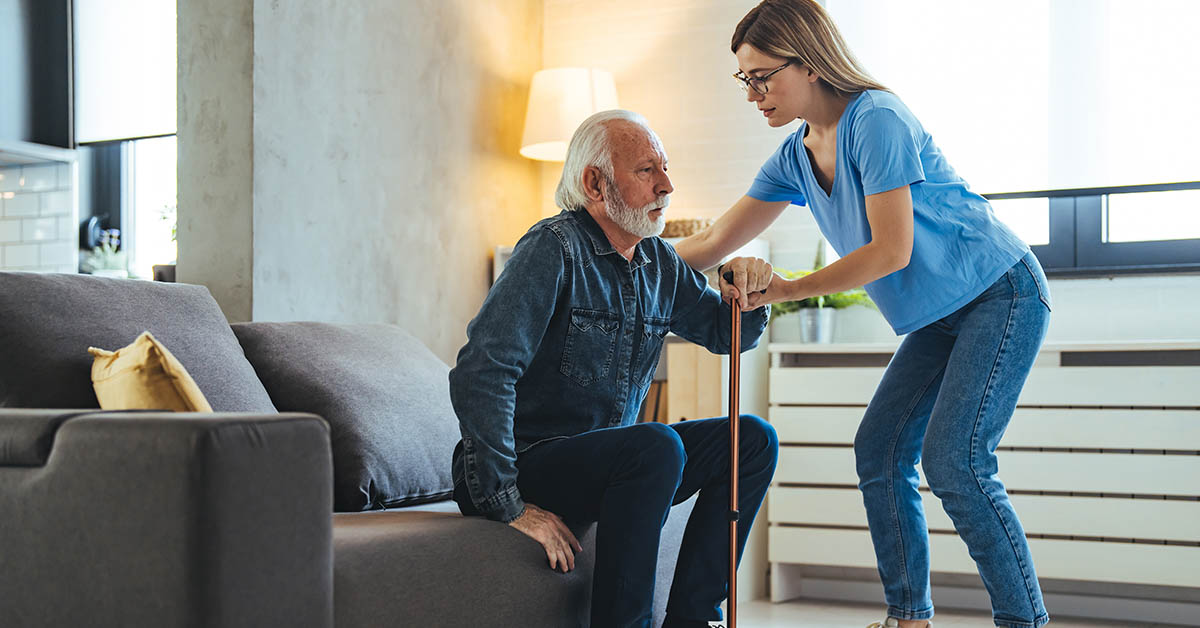Loneliness, the feeling of isolation regardless of how many people may be in your life, links to numerous health issues. Recent research indicates that chronic loneliness can significantly increase the risk of stroke in seniors, with a study showing a 56% higher risk in those consistently feeling lonely over time.1
The Study and Its Findings

The study, published in eClinicalMedicine, analyzed data from the Health and Retirement Study, which included over 12,000 participants aged 50 and above.2 The participants were surveyed about their loneliness levels in two phases: 2006-2008 and again in 2010-2012. Those who reported high levels in both phases had a 56% higher risk of stroke compared to those who consistently reported lower levels.3
Read More: Almost half of patients report the same symptoms one week before a stroke
Loneliness vs. Being Alone

It is crucial to differentiate between being alone and feeling lonely. Being alone refers to the physical absence of others, while loneliness is a subjective feeling of isolation, regardless of the number of people around. The study focused on the feeling and its long-term effects on health.
Health Implications of Loneliness

Dr. Yenee Soh, the lead author of the study, emphasized the severe health consequences of having this feeling go unaddressed. “[it] is increasingly considered a major public health issue,” Soh stated. “Our study suggests that chronic loneliness may play an important role in stroke incidence, which is already one of the leading causes of long-term disability and mortality worldwide”.
The Mechanism Behind Loneliness and Stroke Risk

While the exact way loneliness and stroke are linked is not entirely understood, previous research suggests it can lead to sleep problems, inflammation, and increased stress levels. These factors can contribute to cardiovascular issues, including a higher risk of stroke.
Read More: Big Thighs Associated With Lowered Risk of Stroke and Heart Attack
Importance of Screening for Loneliness

Healthcare providers can play a critical role by routinely screening for loneliness and referring patients to appropriate mental health resources. Dr. Matt Pantell, an expert not involved in the study, noted, “Understanding whether or not a person is lonely, and for how long, may help identify those at higher risk of stroke.”
Potential Interventions

Addressing loneliness involves more than just increasing social interactions. It requires tailored interventions that consider the individual’s unique circumstances. Dr. Soh highlighted the need for specific interventions, as it is a subjective experience that varies greatly among individuals.
Taking Steps to Feel More Connected

Engaging in community activities, joining support groups, and maintaining regular contact with family and friends can help mitigate feelings of loneliness. Mental health professionals can also assist in developing strategies to combat it and improve overall well-being.
Conclusion

Chronic loneliness is a significant public health concern that can increase the risk of stroke by 56% in seniors. Recognizing and addressing the problem through routine screening and targeted interventions can potentially reduce the incidence of stroke and improve the quality of life for older adults.
Sources
- “This non-medical intervention may reduce your stroke risk.” CNN. Madeline Holcombe. June 26, 2024.
- “Chronic loneliness may increase stroke risk among older adults.” Harvard. June 24, 2024.
- “Chronic loneliness and the risk of incident stroke in middle and late adulthood: a longitudinal cohort study of U.S. older adults.” The Lancet. Yenee Soh, et al. July 2024.

